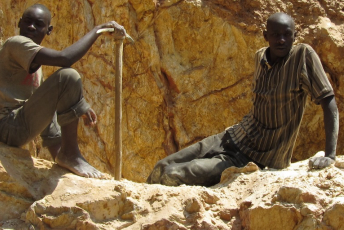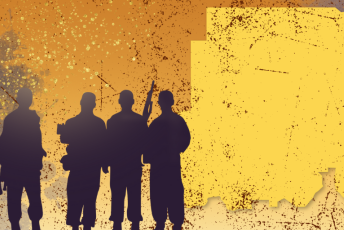The demand for smartphones and electric cars has led to a massive surge in the price of cobalt, a shiny, brittle metal used in batteries for high-tech items like electric cars and smartphones. According to recent market surveys, cobalt prices have soared, hitting a two-year high in February this year, at over US$80 000 per ton.
The Democratic Republic of Congo (DRC) is the world leading producer of cobalt, which officially accounts for more than 50% of global production. The unique properties of cobalt make it a much-prized, much-needed component in rechargeable batteries. As a result, international electronic giants such as Apple and Tesla are clamouring for the metal to sustain production and respond to the demand for products that many see as the future of energy-efficient electronics.
Already analysts are warning that a supply shortage is on the cards. As a result, companies have been scrambling to secure their supplies. Volkswagen, for instance, is set to establish a presence in in Kigali, Rwanda, later this year – the first such initiative in Central Africa.
According to reports, the German automobile manufacturer does not admit that this has anything to do with positioning itself close to the cobalt-rich DRC, but it comes off the back of reports detailing the carmaker’s failed attempts to secure supplies of the metal. In a similar move, Apple recently announced that it would try to buy cobalt directly from miners.
These moves, and cobalt itself, are tainted by the conditions of cobalt mining in the DRC. There are very few international standards or regulations for the extraction of cobalt, and attempts to enforce some standards have been consumed by chronic corruption and a huge illicit market for the metal.
The history of the DRC’s natural resources exploitation has been perilous, and has fuelled conflict and instability for decades. The ongoing leadership crisis and absence of rule of law allow for criminality and disorder in the scramble for cobalt and other natural resources.
Motivated by an insatiable desire for profit, various actors, rebel and criminal groups (such as the so called March 23 Militants, or M23) all jostle for control of the extraction of these resources, alongside powerful multinationals, foreign states and the DRC government. Meanwhile, the country continues to be mired in extreme poverty.
The flourishing black market, which a number of reports allege to be controlled by China, trades in cobalt extracted informally by organised criminal groups under appaling conditions. The most concerning has been the growing number of reports regarding the use of children for the mining of cobalt. An Amnesty International report, released in 2016, explains how children as young as seven carry back-breaking loads of rocks and risk permanent lung damage.
These children and other miners receive little or no payment. In one of these reports, cobalt is described as ‘the new conflict mineral’. Cobalt is mined in the Kivus, Tanganyika and Kasai – the regions most affected by armed conflicts and riddled with militia and illegal arms.
This fragility, the unceasing demand for cobalt and the ever-rising price make for a toxic context that continues to fuel a growing black market, instability and organised criminality in the DRC.
Naomi Tite, Programme Administrator, ENACT, ISS







